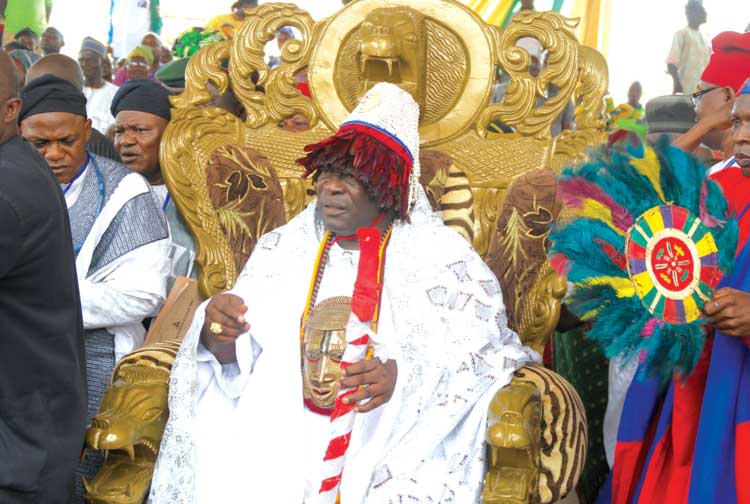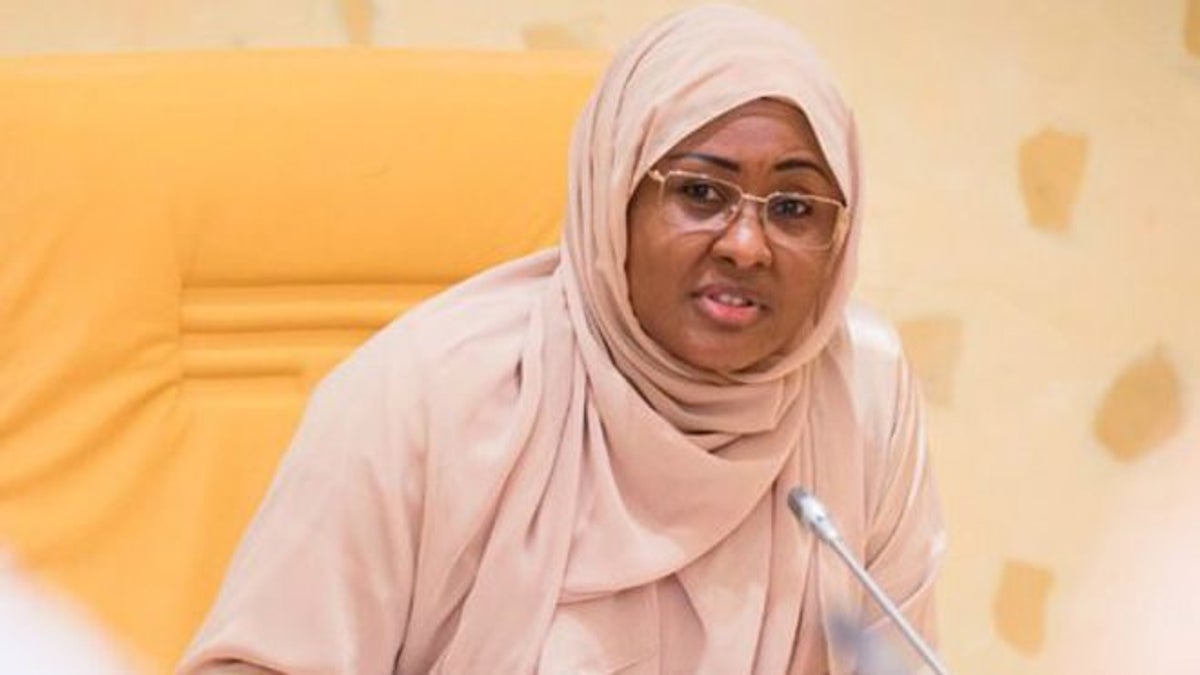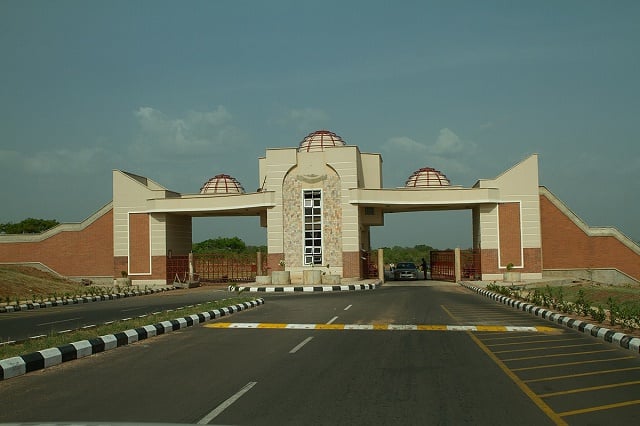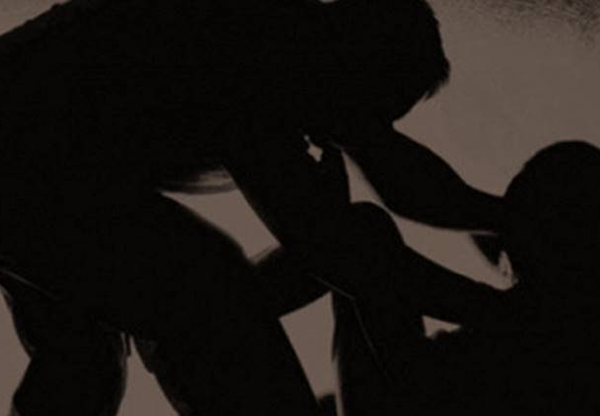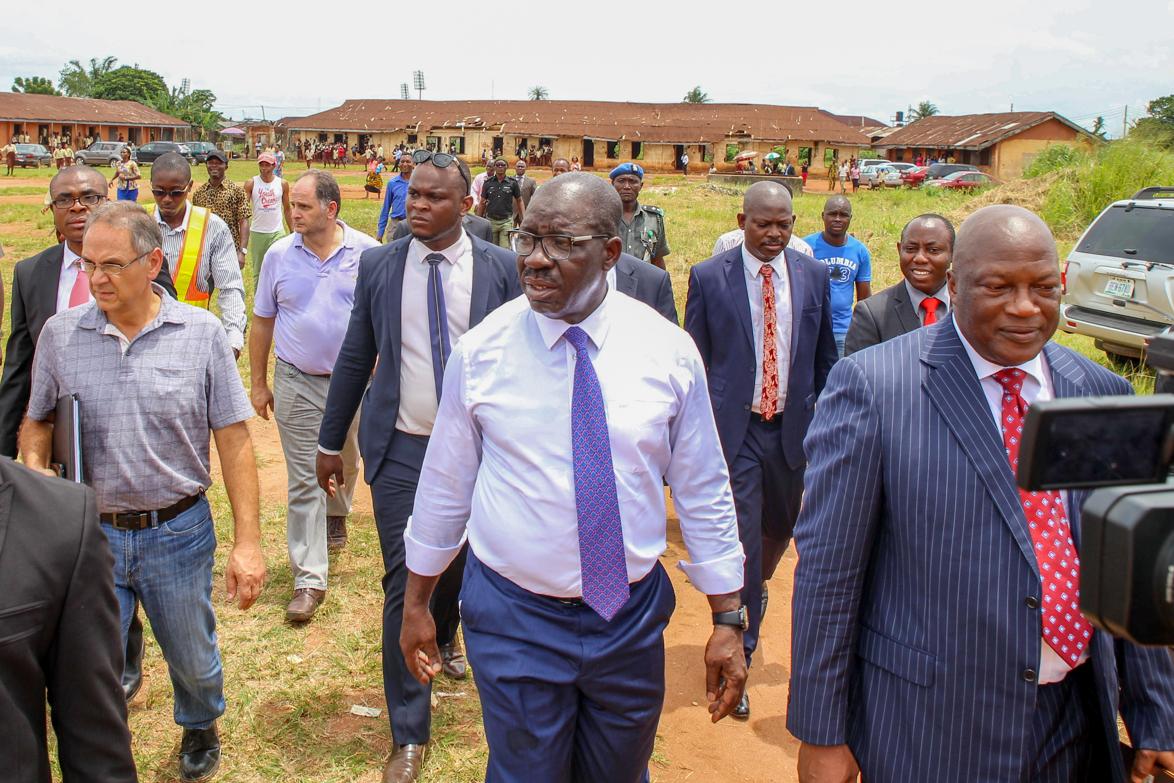BY ADEWALE AJADI
This reflection relates to the recent murder of George Floyd and the emerging consequences of this for all of humanity. Not because George Floyd was a saint – actually he was a human being with good and bad parts, but because, somehow, it captures the deep flaws of what we have been masquerading for generations. And what have we been masquerading? We have created a world in which people are judged by the materials that they have amassed and the power that percolates from that, which is considered as excellence that we should seek or pursue. We have created a world in which we celebrate those who have corralled, collated and who control some paper that we have given value to as valuable, which should be a means of exchange above all else.
Actually, if we really reflect on what world we need, it is a world in which true excellence is about the quality of our humanity; how that humanity is lived, expressed and practiced. And where do we see that? The highest form is in how we treat the “other”, whoever the “other” is – the sick, the meek, the needy, the vilified or the ostracised. That is the true mark of our humanity, and at the opposite or bottom of that is the way in which we have packaged our world to exclude people into a caste or a so-called racial hierarchy system. I will describe it as white supremacy, because it is the most sophisticated of these systems. Of course, related to this are issues like tribalism, religious discrimination, gender prejudice and such, but white supremacy is the most sophisticated of all those social pathogens that we have created. It is a global system. It is not just in the United States of America; it is a global system, and we are all complicit in the perpetuation of white supremacy.
Let me break it down a little bit more. We have, for example, at the top of it, the global system of represented by the United Nations. The United Nations has as its highest committee the Security Council, operated with the hegemony of certain powers and peoples over others. It still considers itself necessary to ensuring that there is parity of value across the world. Within the Security Council, some have veto powers and some countries (especially the whole of Africa and most of Asia) do not have any influence, unless they are elected to become honorary members of the Security Council. If you take a look at those who have the veto power, this is quite disturbing. To say that the Security Council perpetuates white supremacy is to be simply kind. The fact that we do not easily recognise that, tells you how this is part of the oxygen of our world system.
Advertisement
If you move on from that and you start to look at the social framework, you see how we marginalise facts. Especially in ways we express ourselves. For example, we know, scientifically, that there are no different races of people in the world. That all humanity is one race. But that is not what we say. The most powerful country in the world, the United States, has created categories for people: It still calls the so-called whites, “Caucasians” – a depressingly dangerous psychology and epistemology to classify people into. It is within this context that we still talk about black and white races. Every human being that has been, that is, and will ever be, is an African, descended from Africans, who were the first humans, and from whom the so-named “Caucasians” migrated. Until we start talking openly and honestly about these things, which are scientifically proven, we are not going to get over the notion that any person that looks different from you is the “other”. S/he is not your cousin, you do not have any genetic relations, s/he is just the “other”. This is part of that is captured in the failings of the human genome project. When they were doing the mapping of the human genome, they ignored Africans, largely. Now, Africa has the most diverse gene pool in the world; this is scientific. It is largely meaningless for all humanity if Africa’s complex profile of genetics is left out of the understanding of the opportunities and limitation of the human genome.
From the way we have handled the COVID-19 pandemic, it is almost like we need African carnage to be fully reassured of the superiority of the rest of the world’s health care system. Even refusal to recognise that context needs to be married to the content, for all our solutions for handling the virus to be truly effective. We have a hierarchy, which also excludes people that we do not even talk about: Native Americans, Aboriginal Australians, South Pacific islanders, Sámi people, the Ainu, amongst many others. These things are not about skin pigmentation, but about power. So, in framing this problem, I think it is critical for us to recognise that all of us are complicit in it. It is easier to identify individual groups and what they are doing because they are in power or not in power, in the most egregious manner, for example – being killed on video. To me, beyond the intermittent exposure to our inhumanity, it is extremely critical that we start to position ourselves to talk honestly about what these things mean in terms of our practices.
It is not going to be easy because no one gives away privilege wilfully, and at the heart of this is an erroneous notion: That this is about good and bad people. It is not. If you are racist, it does not mean you are fundamentally bad beyond redemption: It means you are flawed and dangerous. Yet, it does not mean that you are bad in all things. You are probably a parent, and you probably care for your children, which means that you do good things and you do bad things. Some of the greatest lessons and honest transitions I have had in nearly two decades of work have been with racist people. We need to be able to honestly say that racism is about the good and bad in people and systems, and we should celebrate them when they get it right and we should be able to challenge them when they get it wrong. But that does not completely negate their lives or their contributions. The battle against racism or even white supremacy is a lifelong battle and the most dangerous are those who believe that they have totally completed their own shares of learning.
Advertisement
Right now, the system is set up, not for us to honestly have conversations about racism and white supremacy, but into the false dichotomy that is the American system: People who are simply good or bad, Democrats or Republicans, anti-racists or racists. The reality is a lot more complex than these false dichotomies. We have to build a system to start to unpack and talk honestly about these things. If someone says something that is ostensibly racist, if we are not going to allow that person to say those things out loud, we are not going to be able to challenge the thinking behind what they say. If we punish them every time they say these things out loud, without educating or enlightening them, we are going to make sure they drive this mind frame even deeper underground and make it as unconscious as possible. That is not a sustainable way to engage these issues. We have to bring out these thoughts into the space and the places where people can speak to and challenge them. We must ensure these are spaces where discomfort is available, because then we truly engage our inner world of meaning and assumptions.
Now, there is a difference, and it is a palpable difference, between the things that drive racism and how they are manifested. All of us, without fail, have prejudices. It means we have experiences that are unpalatable and those experiences influence the choices we make. I can have information, which is an experience. I can be educated to perceive or see someone in a particular way. Or I could have had an experience and before I repeat that experience, I would have created a frame to judge the circumstance and persons involved. This is slightly different from stereotyping. Prejudice deals with individual situations, while stereotyping is about taking that individual situation and putting it or affirming it across similar facts. Someone is stereotyped when we extrapolate from one of those experiences and say, “if these qualities are available in this person then they are dangerous”. “A big black man is a dangerous person because we have had this, we have engaged this and we have seen big black people respond in this particular way; so they are dangerous.”
Every human being has prejudices and stereotypes. The challenge for all of us is the ability and the consciousness to be challenged or challenge ourselves to reconsider what we assume to be reality. The worst danger about stereotypes is that they always become self-fulfilling prophecies, because as we project the myth that all these facts are consistent every time we meet people with similar qualities, we also affirm for the people those qualities that are standards that they should live by. It is never shocking that we are able to project on other people stereotypes that they then affirm as standards of their lives. For example, black people are good athletes. It is a myth (myths often have elements of truth in them). When such myth is recognised as reality and affirmed by authoritative people, and those who are consistent with that myth are rewarded with attention and affection, then it becomes a norm. It should not be acceptable that, therefore, any person who has the qualities that we are talking about, being of African descent in the United States, has to fit into any of the career categories of music, sports and culture. Those are stereotypes, but we all have to stereotype because that is how we start making meaning. The problem is when we hold onto that initial caricature and never open up to allowing ourselves to challenge these assumptions. It means we imprison the humanity and complexity of others into the limitations of our own exposure. Inevitably the problem is that we unconsciously imprison our own humanity in the process. It is incumbent on us, as human beings who want our humanity to grow, to challenge our stereotypes and make sure that they are constantly consistent with the reality we face in our interaction with others, as they are mirrors to see our souls. Then there is discrimination, which acts on the previous prejudices and stereotypes in their seductive dynamic, making us to treat others less than we imagine we deserve.
There are the extreme, peculiar kind of people, who can simply be described as bigots. These are people who, cynically, will not let any new piece of information or fact inform or educate them on the viability of their prejudices and stereotypes. Very consistent examples are the current presidents of the United States of America and Brazil, amongst many people who have turned demagoguery into a tool of keeping power and propagating strength. It is not about good or bad people, but a choice people make because their identities and power bases are closely associated with the ability and consistency of being able to describe the “other” as deeply flawed and undeserving. They consciously expose, exploit and extend our differences, ignoring our inevitable commonality, to maintain power, by sowing seeds of discord. These are the challenges we have in the education and evolution of ourselves and our humanity. We are, therefore, living in an opportunity, a teachable moment – with the death of George Floyd – for all of us to be able to challenge ourselves about where we stand in this spectrum and how we apply this in our lives.
Advertisement
Then we move on to the systems that maintain these instruments of social interaction and often callously deny social mobility and maintain hegemony. The truth be said and understood, systems are ways of allocating social status and preferences, largely on the basis of what we consider to be received wisdom. They are designed on notions of scarcity and rarely recognition of the abundance of human destiny and destination, especially because they are created with capital and its availability at their heart, and not humanity. If we have received wisdom that “other” people are inferior to us, our systems are going to be based on this and the denial of their merit or worth to life chances. The United States of America was built on racism. Its foundation, its power, its drivers, are that of a hierarchy of race. The truth be told, so is the United Kingdom and many countries of the Western world. Some have been homogenous long enough that they do not have to even surface that argument at all, and as such the systems of white supremacy are highly embedded and rarely challenged. I mean, you can take Scandinavian countries, for example, they have used homogeneity to ignore the narrowness of the normal.
When I worked in Sweden in the 1990s, the notions of Jantelagen was often where we started, because of the good intention for no one to stand out, but for all to be similar or ‘normal’ is also damaging, especially to those who are different. Across Scandinavia, there is an epidemic of depression and suicide and, in my view, this reduction of humanity contributes to it. Sweden, right now, as it starts to face migration, is having to surface some of its assumptions. It is capable of being liberal, largely because those systems have not been challenged by the “other”. But if you look at Swedish society and the indigenous Swedish people, like the Sami, and see how they are treated, how they are mocked, how they are positioned, you learn the inhumanity of Jantelagen. It is the same thing with Japan and many other so called homogenous societies. These realities are all our realities. I could go on about different nations. You wonder why Britain does not make more of the ‘Black skin’ of its ancestor, the Cheddar Man, or why people are protesting the Swedish documentary of their Black ancestors.
The African continent itself is not immune from the notions of prejudice and Othering, especially if you look at the assumptions and systems as they deal with the notion of ethnicity. How do diverse ethnic groups interact? Most of the wars and conflicts in the continent are across ethnic lines and about who dominates, the most egregious being the genocide in Rwanda. Even in South Africa, which rarely ever honestly engages ethnicity as something that is problematic, but deals with the issue of race more openly.
The world system needs for all of us to run our assumptions through a filter of how they affect the “other”. What are their impacts? What are their processes? What is their efficacy? For example, I live in Nigeria and I consistently look at what we call the Federal Character System. The Federal Character System is designed to ensure that in the federal government, all states are represented in the allocation of opportunities. The truth of it is that it is a very unsophisticated system, the consequence of which is that it allocates to the elite the opportunities of life, hidden behind the notion of diversity. A truly sophisticated system would map out all the ethnicities of the country and ensure that their languages, their cultures and their systems of existence are honoured and celebrated in every aspect of our lives. That is number one. Secondly, it would ensure that we are able to educate each other about our collective treasures of cultural experiences. Thirdly, it will take cognisance of the fact that in order to affect a truly federal system, state governments would acknowledge all the different ethnic and sub-ethnic groups in their systems, and engage them in terms of understanding the impacts, access and growth within the state. It is after all of that have been done that we can start looking at the federal system and ensuring that we are able to engage the wisdom and competencies of our ethnicities in such a way, not so as to just make up the numbers, but that we can all evolve into one nation.
Advertisement
The journey towards reducing – and it would be reducing – the efficacy and systemic nature of white supremacy requires us to really change our education system. An authentic education system has to be about humanity and a certain kind of honesty about the origins of all of us, the indigenous peoples that have created most of our nations, the oneness of our collective humanity, and it has to ensure that we are able to openly and honestly talk about those who are excluded. It, however, does not mean that we are always going to agree. It does not mean that we are going to accept each other’s position, but what is critical is that we are able to create a space where there is an understanding before we disagree, because the problem lies in this refusal to understand the “other”. If we can get to a space where the goal of national discussion and engagement is understanding, then we can get to a space of working together where we agree to make a difference for all of us together.
Now going back to the specific points: the trans-Atlantic slave trade created something that is truly unusual. It was not designed to do that, but it has had that effect. The trans-Atlantic slave trade took many different ethnic groups from the west coast of Africa and Angola to what we now call the Americas: whether it is Brazil or the United States or across the Caribbean and in fact, to parts of South America. These ethnic groups were morphed, by subhuman bondage, into one under skin pigmentation. They were reduced, they resisted as best as they could, and created something really special that the world had never seen before: Incredible cultures of resistance and understanding of their Africanness. Now, we need to create a space for that to be something that we honour and celebrate, because it is the majesty of the human spirit that those people have survived such torture, oppression and perpetual murder for generations. They do not deserve the disdain of our world; they deserve the recognition that they are a special people, totally unprecedented in the history of the world. Now, how we get there, I do not know. But I know that it is the duty of all humanity to ensure that this is recognised and celebrated.
Advertisement
Ajadi, a lawyer, creative consultant and leadership expert, is author of Omoluwabi 2.0: A Code of Transformation in 21st Century Nigeria.
Advertisement
Views expressed by contributors are strictly personal and not of TheCable.
Add a comment

